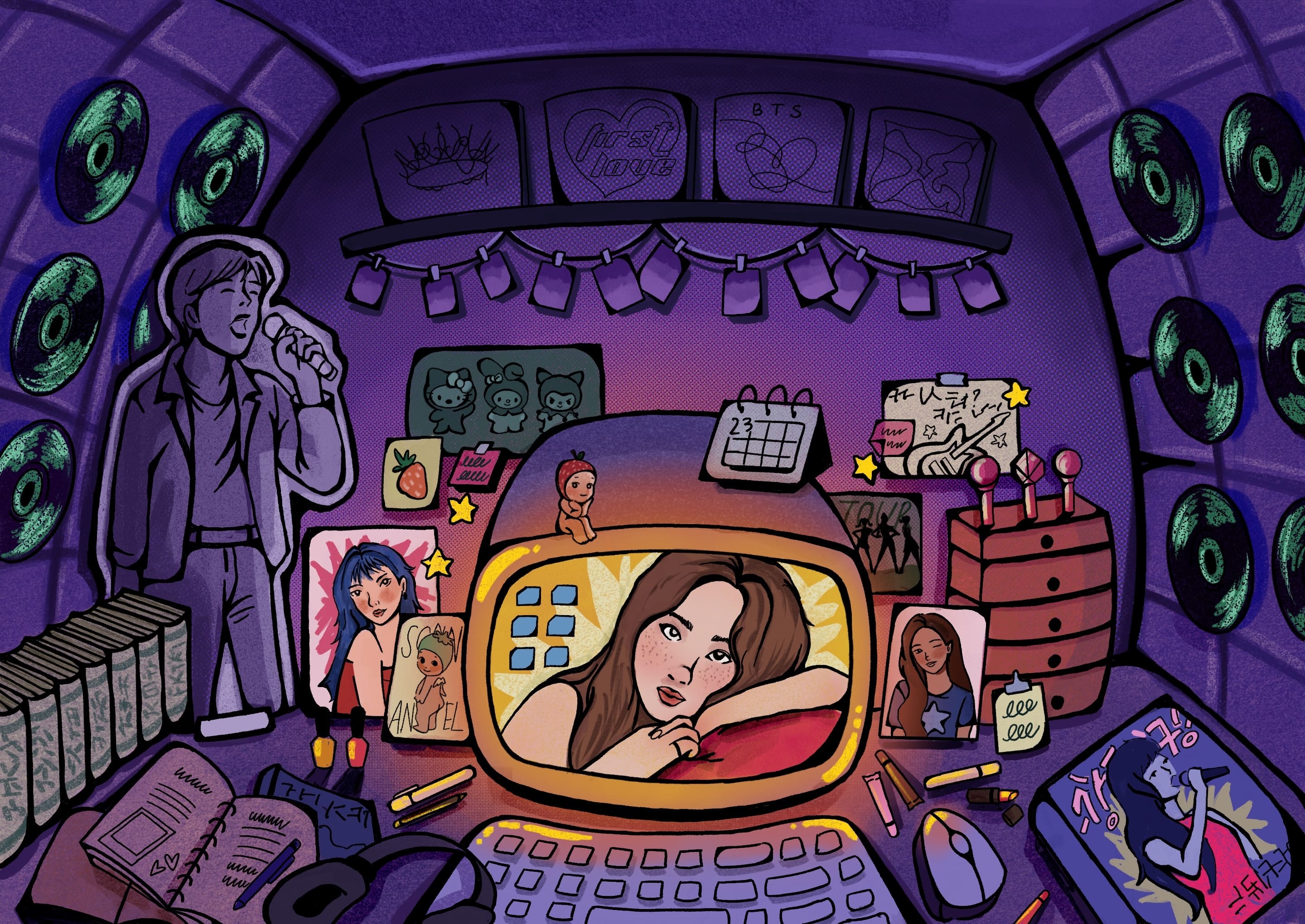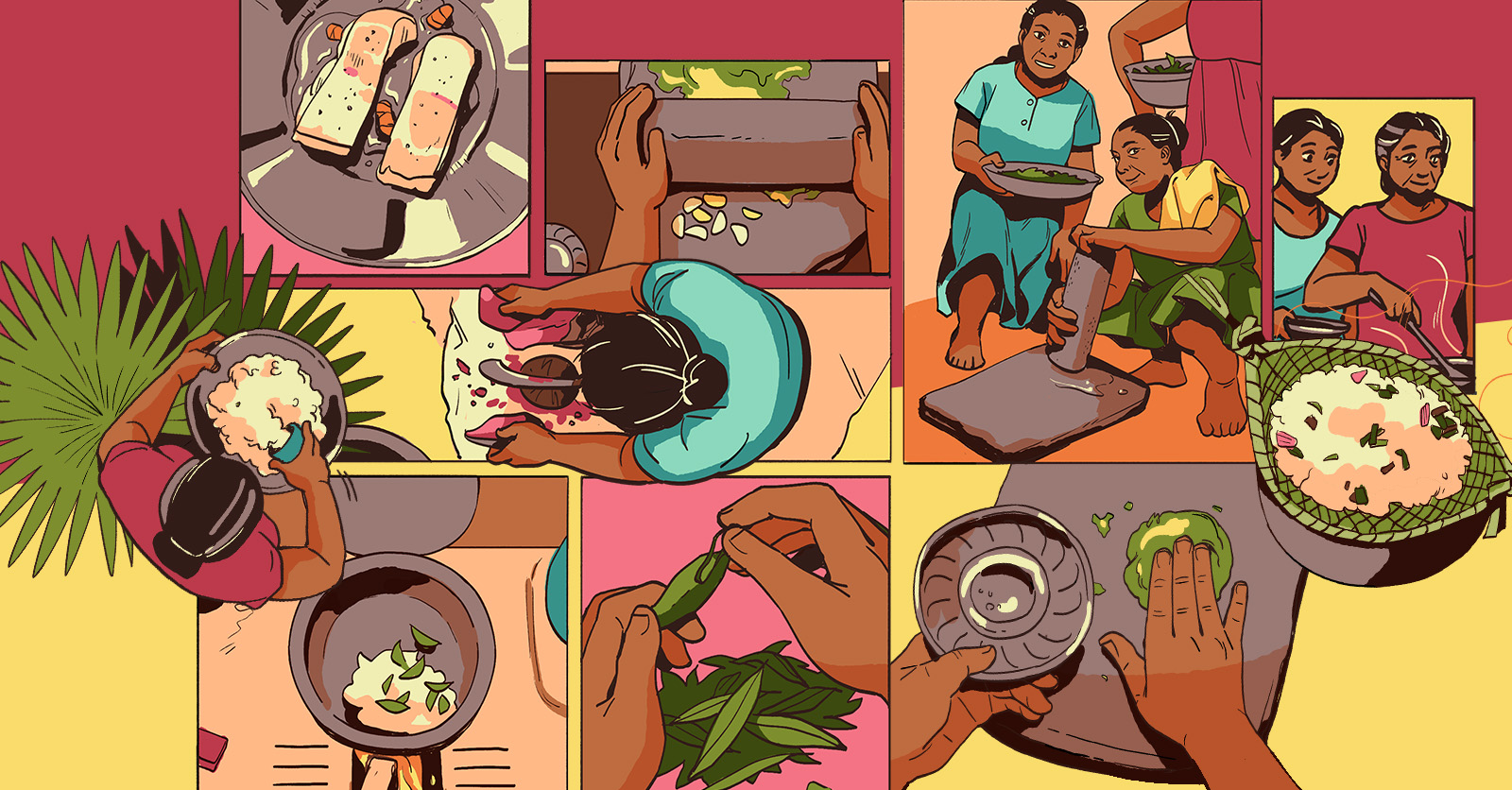
How do Asian contestants use their voice in the Miss World beauty pageant?
by Isabella Chua
Despite its name, Miss World started as a Eurocentric enterprise, in which white women modelled bikinis—considered novel and risqué back in 1951—to market them to other white women. Much has changed since then; Miss World is now a globally recognised beauty pageant, with a diverse pool of contestants extending beyond Europe and the United States.
While the bikinis have been swapped out for a more modest wardrobe, the idea of gussied-up women lined up to be judged seems archaic and male gaze-y by today’s standards. Contestants sidestep this diplomatically by claiming that it is as much—if not more—about inner beauty than a pretty face, while think pieces debate whether the pageant is about female empowerment or simply good old objectification of women, repackaged.
Regardless, it’s too early to be tolling the death knell for beauty pageants. For one, they’re still hugely popular around the world. More than 900 million people across 140 countries tuned in to the 2019 Miss World competition, with about 100 million voting in the public rounds.
For many, large-scale beauty pageants such as Miss World continue to carry the allure of a modern Cinderella story. Getting into Miss World transforms lives overnight—glass slippers optional. On top of cash prizes and getting a swanky New York City apartment, winning the title unlocks otherwise inaccessible opportunities. Many titleholders go on to become ambassadors, models, and, for a lucky few, Bollywood actresses.
Given the stakes, this has spurred a whole pageantry industry in countries obsessed with them, such as India and the Philippines, where parents dole out serious dough for beauty bootcamps, regional pageants, and more. They do all this in hopes that their children will one day claim the title.
A striking irony, perhaps, is that these hopefuls often come from countries historically underrepresented in Western media. The Miss World pageant presents them with a once-in-a-lifetime opportunity to be seen and heard on a global stage, as representatives of their countries and communities, even if under the superlative display of glitz and glamour. When a contestant represents her country on the Miss World stage, her words reflect the hopes, aspirations and needs of her people—not to mention her own.
So, what do contestants actually say when given a platform to address millions of people with? Asian contestants, in particular, come from strong pageant cultures, and the region has enjoyed an impressive track record despite being minorities in what had started as a Eurocentric event. What do they choose to amplify?
To find out, we collected transcripts of introductory speeches from YouTube videos of Miss World contestants from 2010 to 2019. These videos run for only a few minutes—just enough time for contestants to introduce themselves, their countries, and their chosen causes—and they give us some insight into what contestants consider important information to share. Given that the contestant with the most-watched introductory video automatically qualifies for the finals, we infer that the videos’ content is at least somewhat curated for a global audience.
We grouped the countries into six geographical regions—Asia, North America, South America, Oceania, Europe, and Africa—to see how contestants from each region use their voices.
First, we isolated words that represent the concerns of each region using a technique called “skipgrams”. We talk more about this in the methodology, but, broadly speaking, skipgrams are words that often occur closely to one another. For example, almost all regions have the words “beauty-purpose-project” in their top three skipgrams—the words point to “Beauty with a Purpose”, a segment of the Miss World pageant.
Started in 1972 by Julia Morley, “Beauty with a Purpose” is the pageant’s attempt to shift away from its superficial roots and give the event more substance. With this segment, anyone who wants a decent shot at the crown has to at least mention a cause from home that they care about, to varying degrees. Some mention it in passing, while others incorporate montages of themselves performing charitable acts in their communities
How to read the charts: Each visualisation shows the top three skipgrams for the region, stacked on top of one another. Some regions, such as North America, show more than three skipgrams because at least one skipgram was mentioned as frequently as another (e.g., “america-state-united” and “reading-love-love”).
Turns out, the words highlighted in each region are as diverse as the contestants themselves.

Contestants from Europe view Miss World as an opportunity to connect with people from other cultures. They “look forward” to all kinds of things, such as visiting the pageant’s host country that year and meeting other contestants and fans.

South American contestants focus on positive emotions such as love and joy, even as they share their passion for their countries and hobbies.

Oceania seems odd at first glance, with its specific shout-out to “ronald-mcdonald-house”. A closer look shows that the Ronald McDonald House Charity (RMHC), the default charity and beneficiary of Miss World New Zealand, is almost always mentioned by contestants from there.

Permutations of “state-virgin-island” are sprinkled throughout the speeches of North America contestants. The Virgin islands fall under the political jurisdictions of Britain, United States, and Puerto Rico, so there are the British Virgin Islands, United States Virgin Islands, and Spanish Virgin Islands.

Representatives from Africa prefer to introduce their countries in terms of globally recognisable landmarks and symbols, such as the Seven Wonders of the World. Both Miss Zambia 2018 and Miss Zimbabwe 2018 mentions Victoria Falls, which sits at the border between both countries. Miss Egypt 2018 presents Egypt with an air of mysticism, alluding to the Great Pyramids of Giza, magic, and the ruler Cleopatra.

How about Asian contestants? They share a deep loyalty to their respective nations, often grounding their personal stories in relation to their countries. Miss Korea 2015, for instance, studied Business and Hispanic Literature; she wanted to use the pageant to promote financial literacy in order to lift the disadvantaged out of poverty and hunger. Miss Cyprus 2017 wanted to use her knowledge in nutrition dietetics to raise awareness about diabetes and the importance of good nutrition. By linking their backgrounds, such as their education, to local causes they’re passionate about, Asian contestants centre their introductions around being ambassadors of their countries.
While Asia is not the most ethnically diverse region—that distinction goes to the continent of Africa—its contestants are most likely to highlight their countries’ diverse cultures in their speeches. Miss Indonesia 2013 compared the capital of Jakarta to a melting pot of different cultures and, in explaining her origins, goes specific: “I was a representative of West Kalimantan province and I was born in the capital city Pontianak, which is also known as the equator city.”
The relative intimacy with which Asian contestants talk about their countries is best exemplified by Miss Sri Lankas over the years. Miss Sri Lanka 2010 and 2018 shared personal narratives that were deeply intertwined with Sri Lanka’s; both aspired to become beacons of hope and comfort to their people, who’ve endured 30 years of civil war from the 1980s to 2009.
Very few jobs provide a platform designed specifically for someone to address millions of people; politicians, celebrities, and beauty pageant contestants are some of the rare few. The Miss World judging criteria differ from pageant to pageant, but with the pageant’s supposed emphasis on both inner and outer beauty, Miss World contestants are not only encouraged but expected to use their voices for social good.
The opportunity to speak on behalf of a cause in your country—and have a large, global audience listen to what you have to say—is a huge privilege. So, what do Miss World contestants do with this privilege?
We look into the causes Miss World contestants highlight by processing their speech transcripts through keywords tagged to the 17 United Nation (UN) Sustainable Development Goals (SDGs). It’s not a perfect method; in fact, it works like bingo. A count only registers when a contestant says an exact word from a basket of predetermined keywords specific to each goal. So, it’s more useful to look at what was captured rather than keywords that may have been excluded.
Under “reduced inequalities”—one of the most talked-about goals across the regions—children, followed by women and indigenous people, are beneficiaries of Miss World contestants’ causes. Children-related causes are by far the most popular, perhaps because there are so many ways to help children, such as improving their education, health, and issues related to bullying and poverty. Generally, Miss World contestants stop there—we know who a contestant’s beneficiary (or beneficiaries) are, and how she provides them aid.
Of course, some contestants use this opportunity to make an impassioned appeal to the audience, sharing concrete causes that are pressing for their countries. Miss Nepal 2016’s chosen cause of helping children who have lost their schools was an immediate response to the catastrophic 2015 Nepal earthquake, which destroyed more than 600,000 structures in Kathmandu. Miss India 2014 shared about her work as the founder of an non-government organisation (NGO) that educates children on basic hygiene and sanitation systems. In India, poor sanitation is a systemic problem that disproportionately affects children, as it is linked to malnutrition, stunted growth, and deadly diarrhoea.
We also see contestants from Asia and Europe who choose not to mention any areas, keeping things vague with phrases such as “helping children” and “empower[ing] children”. This may be strategic—such answers let contestants say the right words without the risk of alienating anyone. Given that the Miss World contestants we see are a curated version of themselves, choosing safe, run-of-the-mill answers like “helping children” may be the best way to appeal to as many people as possible. After all, who could object to the idea of helping children?
Even speeches related to gender equality—a category one might expect Miss World contestants to feel most connected to—tend to be perfunctory. Contestants from Asia, in particular, talk about women in relation to their personal ethos and womanhood rather than any causes. Miss Indonesia 2016 shared how her parents taught her the importance of being an “independent and strong woman”, for example, while Miss Philippines 2014 talked about lending her voice to people in need, especially “women and children everywhere else.”
This might be because only the keyword “women/woman”, out of all the gender equality keywords in the SDG corpus, was used by the contestants. That said, the other gender keywords, such as “gender”, “equality”, “empower girls”, do seem entirely appropriate for a Miss World contestant’s speech. For a competition premised on the celebration of women, there’s surprisingly little talk about gender at all. Why that’s the case is anyone’s guess, although perhaps the contestants are simply trying not to pigeonhole themselves. As representatives of their countries, they speak for everyone, not just women.
Even so, circling back to our question about what Miss World contestants do with the privilege afforded them by having access to a global platform, the responses suggest that it might not be a whole lot.
This makes us wonder just how accepting the Miss World pageant is of voices calling for change, instead of only supporting contestants who act as they are expected to—a pretty voice without the sting. This may seem like a strong view, but Anastasia Lin, Miss Canada 2015, serves as a cautionary tale. She was an outspoken critic of China’s human rights abuses—and China, the main sponsor of Miss World, did something about it. Lin was banned from the 2015 Miss World pageant, and subsequently, she was even told by the organisers that she could not speak publicly at the 2016 Miss World finals.
If most Miss World contestants are choosing not to speak boldly in their introductions about what they believe in, perhaps what the data tells us is that the pageant isn’t all that different from the wider world that watches it. Women’s voices are often overlooked or silenced in places of power and prestige—from boardrooms to Bollywood—and it makes sense that many women feel unable or unwilling to speak up about what they deeply care about and the causes they believe in.
Miss World, along with other pageant contests, have fought to stay relevant in today’s world by focusing on women’s achievements and giving their voices a platform. But in reality, how much of this remains lip service? Ultimately Miss World contestants are judged according to how they look and what they say. How much of their personal voices do contestants share with the world, after going through so many checks of approval from their own country and the Miss World organisation?
Looking at what we found, Rachel Ng at Synthesis—our partner in analysing the Miss World YouTube data—had this to say: “It’s striking that the data reveals that speeches tend to reflect dated or more conservative narratives, even as public conversation has evolved to spotlight more emergent, progressive discourses around both the female lived experience and social issues over the years. Perhaps this is a timely prompt to re-examine the role that Miss World, and pageant contests, play in today’s context, and push not only for a louder personal voice from its contestants but also purposeful impact from its organisers.”
If that sounds like we’re expecting too much out of a beauty contest, well, it’s for a good reason.
Given the opportunity, beauty contestants do rise to the occasion to share causes and narratives that matter to them. Our dive into Asian contestants’ speeches reveals how some contestants went off the conventional scripts to highlight the real issues affecting their countries, what they have done about it, and how they plan to elevate it further after winning the title.
People may ridicule or criticise beauty pageants as backward for judging women, but how many of those same people recognise the irony that beauty pageants remain one of the few dedicated places for women to share their voice with a national, even international, audience?
If beauty pageants such as Miss World were to value and uplift their contestants’ voices, what new, powerful stories might they share, and what impact would they make with the platforms they have?
They may even change the world.
We do Human Centered Data Science—a way of understanding data better by understanding the people and context shaping it.
We are a multi-disciplinary team of engineers, data scientists and cultural strategists that unlock the power of open data, especially focused on sustainability, beauty, entertainment, and F&B categories.
We build original datasets where none exist that can detect shifts in consumer preferences and identify growth audiences for our partners.
Interested in partnering with us or joining the team? Drop us a note at hello@synthesis.partners!








